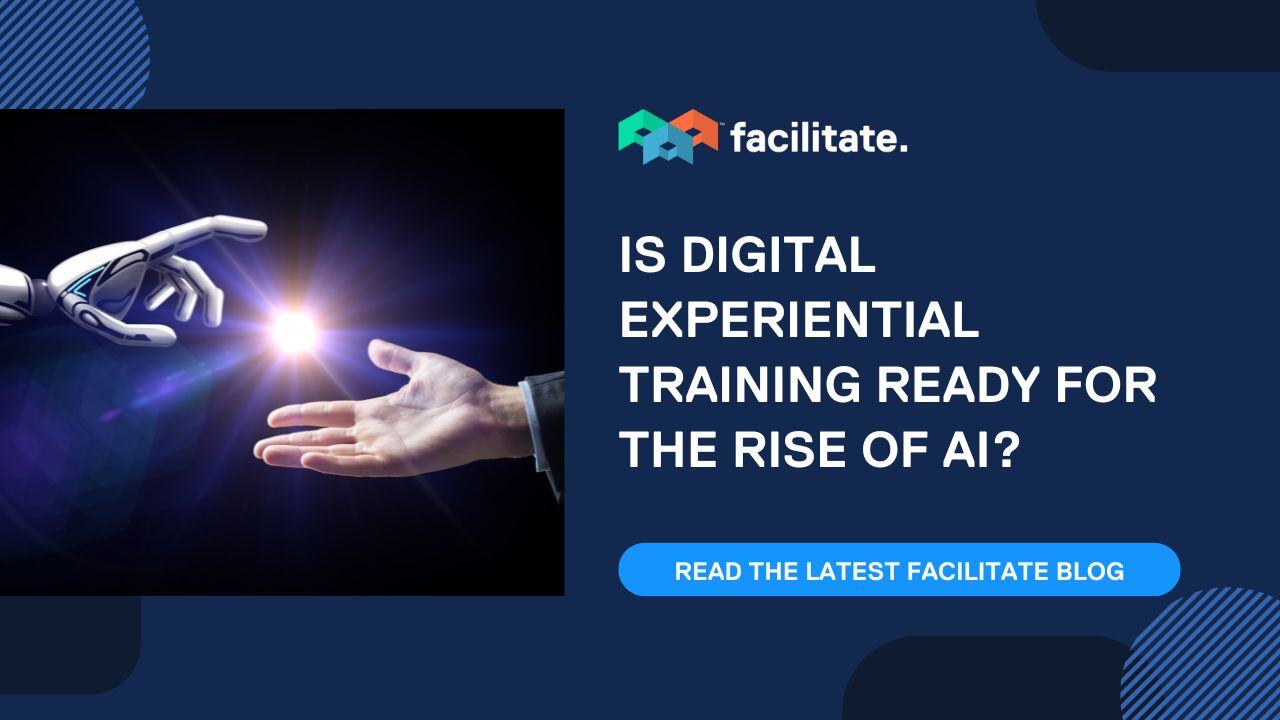Is Digital Experiential Training Ready for the Rise of AI?

As we delve deeper into the realm of Digital Experiential Training (DET), the question arises: How will the rise of Artificial Intelligence (AI) impact this innovative approach to learning?
While the core principles of experiential learning and digital scalability remain relevant, AI has the potential to revolutionize the way training content is created and delivered.
One of the most significant benefits of AI in content creation is its ability to improve the quality and specificity of the content. With AI-powered algorithms analyzing vast amounts of data, training materials can be tailored to meet the unique needs of learners more effectively. This means that learners are more likely to engage with content that is relevant and personalized to their individual preferences and learning styles.
Moreover, AI can significantly increase the speed of content creation, allowing organizations to develop training materials more efficiently. This means that updates and revisions can be made quickly and seamlessly, ensuring that content remains up-to-date and relevant.
Furthermore, AI has the potential to usher in a new era of adaptive learning, where training content dynamically adjusts based on learners' previous experiences, current abilities, and desired learning outcomes. This level of personalization can enhance the effectiveness of training programs by providing learners with a customized learning journey that meets their specific needs.
However, despite these advancements, the delivery of training content through technology interfaces such as mobile devices and computers still poses limitations. For example, motor skills cannot be adequately practiced on screen-based technology, and high levels of distraction are often present when using 2D interfaces.
As a result, immersive technologies such as Virtual Reality (VR) and Augmented Reality (AR) remain highly relevant in delivering high-impact training experiences. These technologies offer more immersive and interactive learning environments, allowing learners to engage with content in a more meaningful way.
In conclusion, while AI has the potential to enhance the effectiveness of digital experiential training, it will not render DET irrelevant. Instead, AI will complement experiential learning principles by providing more realistic experiences and experimentation opportunities. Ultimately, the basic premise of experiential learning—that adults learn best through a process of experience, reflection, abstraction, and experimentation—remains unchanged, and AI assistance will only serve to support and enhance this fundamental cognitive process.
But why just explore these concepts theoretically when you can witness and engage with them in action?
We invite you to step into the world of Digital Experiential Training at an exclusive event brought to you by Facilitate, featuring insights from global tech leaders Meta and Ingram Micro. Join us to experience the future of Digital Experiential Training. Learn more and register here.
